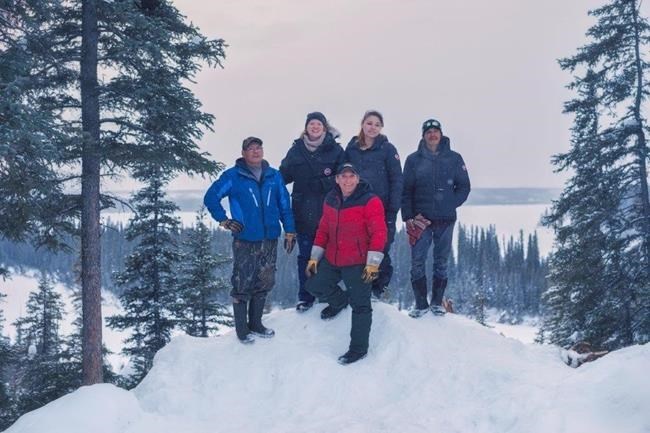Twyla Edgi-Masuzumi was the first person to get a call when a family of six disappeared on the Mackenzie River in the Northwest Territories while travelling by boat to a funeral last summer.
Edgi-Masuzumi from Foot Good Hope is one of four guardians in the fly-in community that is part of the Dene district known as K'ahsho Got'ine, or "Big Willow People."
The village on the banks of the river is home to about 500 residents.
She, along with John Tobac, Joseph Tobac and Buddy Gully, are a full-time team dedicated to monitoring climate change, protecting the environment and helping others get out on the land.
But with no dedicated search-and-rescue team in the community and just two RCMP officers, Edgi-Masuzumi and the other guardians are also usually the first to step up in an emergency.
"They called me and asked if we'd be able to help, because they didn't know who to call," she said of the worried relatives who called her that day about the missing family.
The six were covering the 150-kilometre stretch from Norman Wells, N.W.T., to Fort Good Hope, but hadn't been spotted for 12 hours.
With food and supplies already packed for emergencies, the guardians and two other community members launched their boats on the river right away.
"We knew the river. We knew more or less where they might be," John Tobac said.
He said guardians knew the route between the two communities well, because they had documented changes in water patterns and consulted with elders about where the most treacherous parts might be.
The searchers eventually found the missing travellers, who were safe and resting on the shore near some rapids. Their boat's motor had been destroyed.
After sharing some food, the guardians ferried the family back to Fort Good Hope in time for the funeral.
"It made everybody happy," Tobac said.
The guardians were also called on to help out last spring when the Mackenzie River rose to record levels and flooded many of the community's homes.
Edgi-Masuzumi said the guardians helped bring families to dry land, hauled belongings out of waterlogged homes and removed fuel and sewage tanks so they weren't lost in the river.
"Wherever they needed help, we were right there," she said.
When part of the community lost power in the flood, the guardians supplied generators to keep rescued freezers filled with food and meat running.
Edgi-Masuzumi said that while the military or the Canadian Rangers usually take days to arrive in a northerncommunity needing help, the four guardians in Fort Good Hope can be ready to step up in a matter of minutes.
"For us, we can just go on the spur of the moment," she said.
"We're always visible in the community as a group. It's in our nature to help," Tobac said.
The guardians spend most of their time on the land, but they hope to buy a second boat and get more search-and-rescue training so they can continue to fill their community's emergency response gap.
"In the past, the community would rely on people like the RCMP ... the people that have the resources." Tobac said.
"For us, it's just being there to lend a hand."
This report by The Canadian Press was first published Feb. 13, 2022.
___
This story was produced with the financial assistance of the Facebook and Canadian Press News Fellowship
Emma Tranter, The Canadian Press



